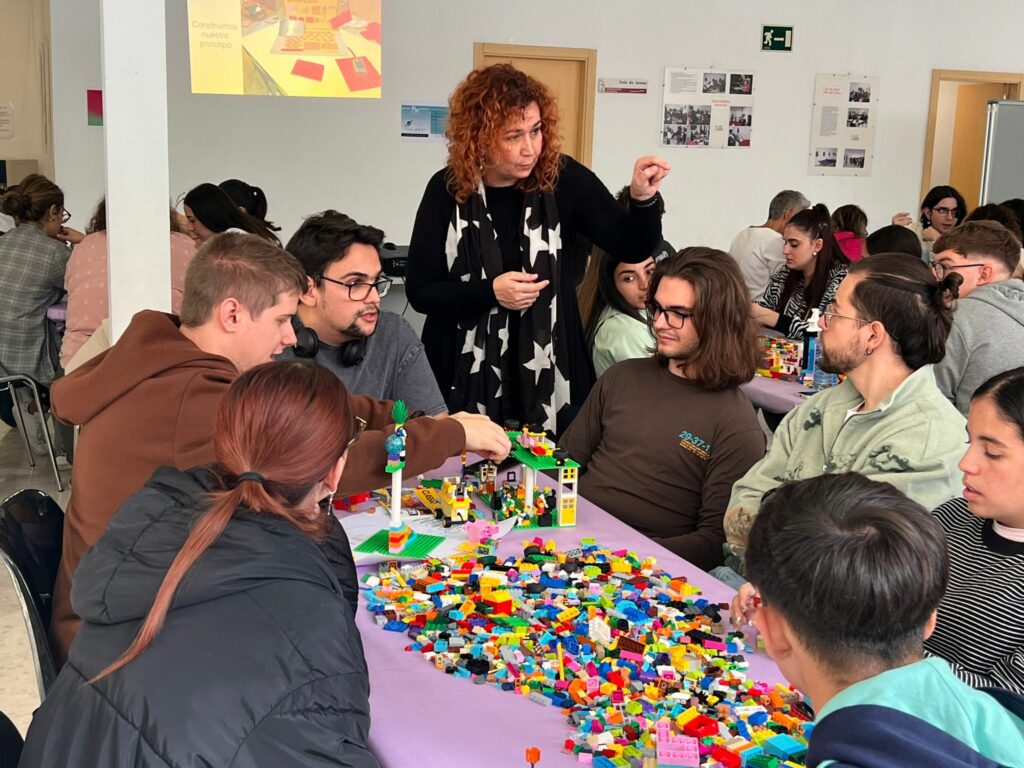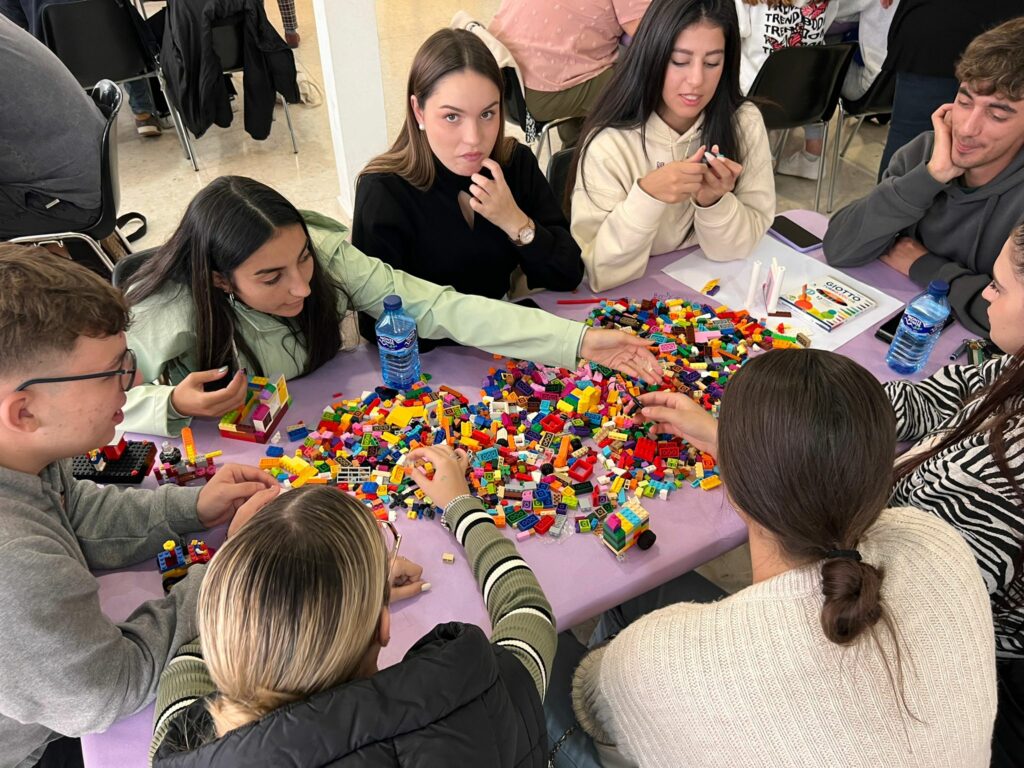The Play/Act project, funded by the Erasmus+ program of the European Union, concluded its educational activities at the Youth Leisure Center “El Economato” in Mérida on October 27th with great success.
For this event, a dozen national and international students from the universities associated with the project (Spain, Italy, Portugal, and Hungary) participated, along with students from the Higher Vocational Training of IES Santa Eulalia. The event also had the presence of Alicia González Pérez, Vice Chancellor for Students, Employment, and Mobility at the University of Extremadura (UEx); Esther Muñoz Baquero, Director General of the University of the Junta de Extremadura, and Laura Iglesias Cano, Delegate Councilor for Youth, Youth Participation, and Healthy Leisure of the City Council of Mérida.
After the success of previous sessions in different partner countries, the Extremadura region has completed the development of activities related to the placemaking project. Throughout the five days of training from October 23 to 27, attendees received various sessions and workshops from experts and teachers from the UEx.
The aim was to create an audiovisual product using video narrative, pitching, and storytelling techniques. Additionally, participants enjoyed guided tours to understand the urban, cultural, and environmental concept of spaces such as Mérida Badajoz and Cáceres, a city recognized as a World Heritage Site by UNESCO.
The gathering at “El Economato,” named “Prototyping to Test,” was organized by Cultura Emprendedora of the Junta de Extremadura. Its ultimate goal was to provide a space for interaction with the community, presenting and explaining the main ideas to continue the dialogue with citizens and design a leisure space according to their proposals and needs. Throughout the process, there were face-to-face and virtual meetings and training sessions focused on three specific axes highlighted during the day: understanding the needs of the Mérida population to rehabilitate the Youth Center, changing socialization habits among young people aged 12 to 22 through actions related to creating QR codes for video tutorials aimed at improving communication and audiovisual skills, and implementing in-person video game tournaments to utilize the Economato spaces.
As a final point, Delegate Councilor Iglesias Cano emphasized the importance of this placemaking work, stating that the proposals of citizens, especially the younger generation, should be heard by authorities, empowering them to be agents of change. Vice Chancellor of UEx González Pérez encouraged them to continue strengthening the key skills necessary to promote such projects from the university’s perspective, stressing the need to take control to transform the most active and dynamic spaces. Finally, Director General Muñoz Baquero highlighted the project’s significance for its presentation from such a multidisciplinary standpoint. She reinforced the idea that the University is available for future meetings, projects, and training of this magnitude, benefiting Extremadura and partner countries in terms of academic and knowledge transfer.
Play/Act Project
Play/Act is funded by the Erasmus+ program of the European Union with a budget of €275,596 and a duration until March 2024. It is led by the University of Évora (Portugal) and involves the University of Extremadura and the Ministry of Economy, Science, and Digital Agenda of the Extremadura Regional Government as Spanish representatives. Other participants include Community Impact from Lisbon, Portugal; the Creative Industries Consortium of Matera Hub, representing Italy; and the Hungarian Contemporary Architecture Center or KÉK, based in Budapest.
The project aims to create and develop an interdisciplinary training plan in Higher Education, taking the “New European Bauhaus” initiative as a reference. The proposal involves a process of codesign, cocreation, and adaptation of common urban spaces, engaging students in active processes of promotion, transformation, and innovation of their own community and environment.
For more information about this initiative, you can visit their website: https://playact.eu/


